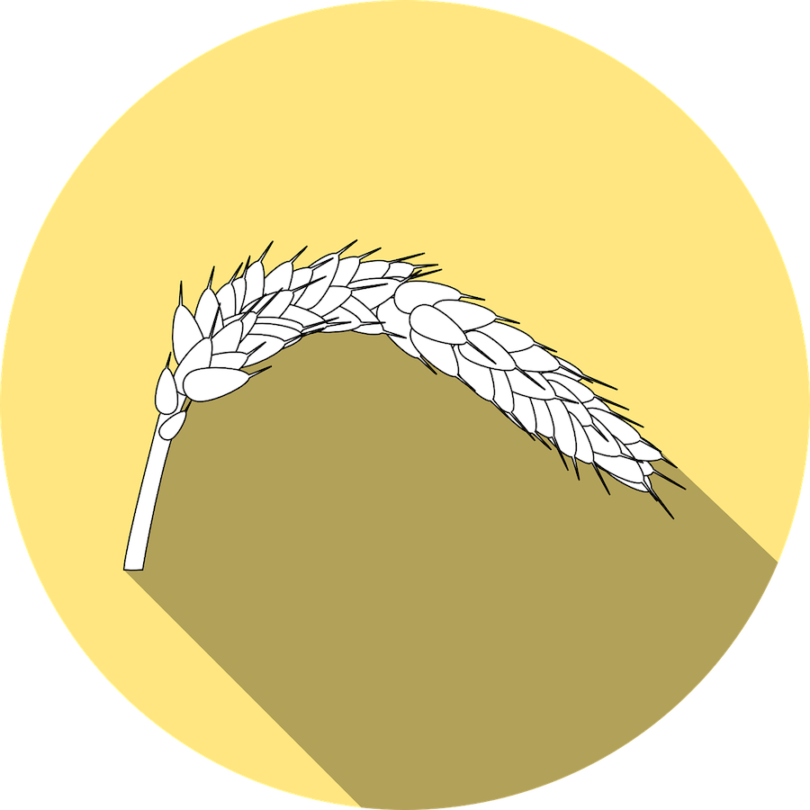In cereals including wheat, rye, and barley, there is a protein called gluten. Gluten sensitivity may make some individuals experience symptoms including bloating and diarrhea. Those with these symptoms might feel better and avoid chronic illnesses like diabetes and heart disease by following a rigorous gluten-free diet.
Introduction
Grains including wheat, barley, rye, and oats contain the protein known as gluten. It gives dough strength before to baking and aids in giving bread its chewy texture.
Those who think they have a sensitivity to or allergy to gluten are increasingly turning to gluten-free diets. Some people may have symptoms after consuming gluten-containing meals, such as bloating, diarrhea, and stomach discomfort. Some people may also feel exhausted or have headaches.
The health advantages of cutting out gluten include weight loss due to lower calorie intake (since many processed foods contain added sugars); improved digestion due to less constipation caused by simple carbohydrates; clearer skin because you are not consuming trans fats found in processed snacks like potato chips; and a decreased risk of heart disease because you are also no longer consuming trans fats.
What is gluten and why is it harmful to your health?
A protein called gluten is present in wheat, barley, and rye. It helps the bread dough rise and provides it flexibility. What’s the issue with gluten? It may result in bodily inflammation, which then brings on gastrointestinal issues including gas, bloating, and diarrhea. Moreover, it may interfere with your brain or immune system, which may cause problems like rashes (like depression).
It can be challenging for doctors to determine whether a patient has an intolerance or sensitivity to gluten without first testing him/her. Given that so many people react differently to gluten—some experience no symptoms at all while others feel terrible after consuming even small amounts of it—they often recommend testing the patient first.
What Health Advantages Can You Get by Avoiding Gluten?
You may greatly enhance your general health by avoiding gluten. It might aid with weight reduction, digestive problems, and potentially heart disease, according to the National Foundation for Celiac Awareness.
Weight reduction: A 2015 research from Monash University in Australia indicated that among overweight persons with type 2 diabetes who were not taking medication for their illness, switching to a gluten-free diet might cause weight loss by lowering calorie intake and increasing metabolic performance. The researchers also discovered that individuals who ate more whole grains benefited more than those who ingested less whole grains (or none at all).
Heart health: According to a 2016 study published in JAMA Internal Medicine, people who strictly adhered to a gluten-free diet saw significant drops in their LDL cholesterol levels after six months compared to those who maintained their regular diets but received advice on how to best follow the diet without any specific restrictions regarding what foods they could eat or how often they should eat them during this time; no adverse effects were reported among either group.
How do I know whether I need to stop eating gluten?
A gluten-free diet is probably beneficial for your health if you have celiac disease, gluten sensitivity, or a wheat allergy. See your doctor right away if you’re uncertain about whether this applies to you and want to learn more about how gluten affects your body.
On a gluten-free diet, how can I ensure that I get enough fiber?
For good eating and digestion, fiber is crucial. It may be found in whole grains, fruits, and vegetables. Listed below are some examples of meals rich in fiber:
Beans (legumes): peas, lentils, black beans, and chickpeas (garbanzo beans).
Nuts, including walnuts, cashews, and almonds
Sesame seeds, seeds
Finally, what should we say?
What’s the verdict?
Your health and ability to lose weight may both benefit from avoiding gluten.
If you have celiac disease or a gluten sensitivity that is not related to celiac disease, you should speak with a doctor before beginning a gluten-free diet.
Before beginning a gluten-free diet, speak with a nutritionist if you’re unsure of whether it’s good for you or if you want guidance on how to ensure that the body is correctly absorbing all of the nutrients from your food (this is called “nutrient absorption”).
If you have any other health issues than those mentioned above, such as diabetes or renal failure, you should speak with a nutritionist before beginning a gluten-free diet since these illnesses call for extra caution while adhering to particular diets like this one!
Your health and ability to lose weight may both benefit from avoiding gluten.
What, however, is gluten? A protein called gluten is present in wheat, barley, and rye. It provides bread its texture and aids in baking rise.
Regrettably, many individuals might have stomach issues from gluten, especially those who have celiac disease or non-celiac gluten sensitivity (NCGS). After consuming gluten-containing meals, symptoms include bloating, diarrhea, and stomach discomfort. Talk to your doctor about being tested for NCGS if you believe you may have it; if so, limiting gluten-containing foods can help you feel better and lose weight.
Gluten-containing foods are associated with an increased risk of heart disease due to their high levels of saturated fats, which significantly raise cholesterol levels in our bodies over time and eventually lead to cardiovascular diseases like stroke/heart attack/etc. In addition to causing digestive problems like bloating and diarrhea when consumed by people who are sensitive to or allergic to them…
Conclusion
A fantastic strategy to enhance your health and reduce weight is to become gluten-free. To avoid nutritional deficits when eating a gluten-free diet, it’s crucial to make sure you are getting enough fiber and other nutrients. This post will provide you with some helpful advice whether you’re thinking about cutting gluten out or are currently doing so.



Leave a Reply